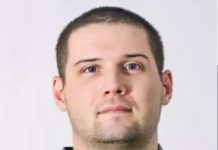Division I conference commissioners held a conference call with the media today, during which they reiterated their commitment to the new rules emphasis. They also said that while adjustments continue to be made by players, coaches and referees, that generally things are going well.
“Other than a stray comment here or there, everyone [has been] supportive and if anything just want to make sure we stay with it,” said Hockey East commissioner Joe Bertagna, who is also chair of the American Hockey Coaches Association.
The mandate came as a result of growing frustration over the direction of the game, and the sense that offenses were being hindered by an increased tolerance for illegal defensive play. Some players have sensed frustration over the adjustment, and having to re-learn how to play defense. But Bertagna reiterated the importance of changing the hockey culture for the benefit of the sport.
— Joe Bertagna, Hockey East commissioner
“If the way they were taught to play defense is to hook and grab, then yeah, they do have to learn it again,” he said. “Does that mean any time you take your hand off the stick it’s a penalty? No. You can push, you can lean, but once you curl your arm around, that’s a penalty, and they understand that and passed it on to their players.
“Going through center ice the last couple of years, referees would allow guys to get hooked and grabbed if they, quote, ‘played through it.’ Now we’re telling the referees, the burden should not be on the offensive player to play through it. So now you have to play defense by getting position on an opponent, not by hooking, not by holding, not by grabbing a stick. These are illegal actions. These have been on the books for years. So I have no sympathy for the players if the illegal acts they’ve been getting away with for years and now being penalized.”
According to the original memo from the NCAA, the emphasis is on:
• eliminating holding along the boards, where players take one hand off the stick and wrap up opponents
• in the neutral zone, offensive players being held trying to get free to get to a loose puck
• in the neutral zone, offensive players trying to get free to receive a pass
“I see players adjusting. I saw it from the very first game I saw on TV with Maine playing against North Dakota,” said CCHA commissioner Tom Anastos. “Players are very much adapting with play along the boards. You can see players approaching covering players in the neutral zone and the slot area in a different way, without wrapping arms and sticks around.”
The commissioners did acknowledge the complaints of some coaches that perhaps the officials were cracking down in areas that were not specified by the original edict.
“How much has some of this infiltrated into other areas of the game that we didn’t necessarily place addition emphasis on?” said Anastos. “For example, we don’t want penalties to be called just because someone is bigger or stronger than someone else when they are fighting for a puck and they knock someone down. But it’s going to take lots of time to generate a level of consistency. We live in an era of instant gratification, but it’s crazy to think this is going to satisfy everyone two, three weeks into the season.”
Everyone agrees that the new emphasis will not automatically increase scoring. There are a lot of other factors that have led to decreased scoring and scoring chances. But opening up the game by enforcing the rules is considered a crucial first step.
The key, then, is consistency, and making sure the initiative is followed through.
“The officials are all committed to the initiative, they’re making a great effort to do the best they can, and it’s going to be an ongoing process to educate them, through video and a variety of things,” Anastos said.
“Players and teams don’t just come together the first game they play, it evolves over a period of time. They work on their forecheck, their defensive zone coverage … every day, they’re coached every day, they’re coached every game. Our officials only play games. So it takes time to develop the kind of consistency [in officials] we all desire.”
The worst thing that could happen, Anastos said, is what has happened in the NHL before: for things to revert to the past when the playoffs roll around.
“Would it really be fair to the coaches who make an effort to change the way they play, to change the way it’s called at the end of the season?” he said.
Bertagna said the conferences remain committed to this, and that it’s up to players and coaches how to react.
“The players and coaches will have more to say about how many penalties are called than the referees will,” said Bertagna. “If they want to make a game of chicken out of this and think that we’ll back down, then penalties are going to be called and continue to be called. …
“I think some of the frustration has been in coaching the kids along the boards and coaching the kids in neutral ice, there was still a lot of penalties called in other areas that weren’t part of the initiative — that there was just a general crackdown instead of a more specifically defined crackdown. And I think there is some evidence that’s gone on. But it puts administrators in a tough spot because we can’t go to officials and say, ‘Whoa, slow down.’ We can never be in a position to tell officials to call fewer penalties.
“It’s not like guys are making things up. Almost everything I’ve seen that’s been called a penalty, has been a penalty. And what we’re seeing here is more of a statement on where we let the game go. Where guys have been used to doing so many things that were illegal and getting away with it … that the rulebook just became a bunch of suggestions some nights.”
Bertagna said his league is planning a review meeting with coaches, administrators and referees on Nov. 11. Other conferences expect to have similar meetings.


